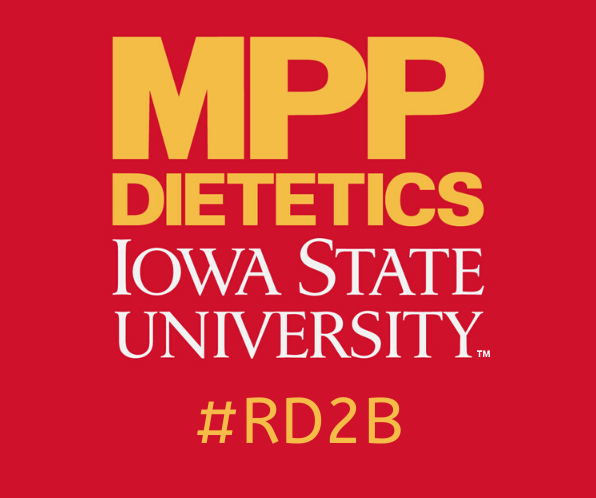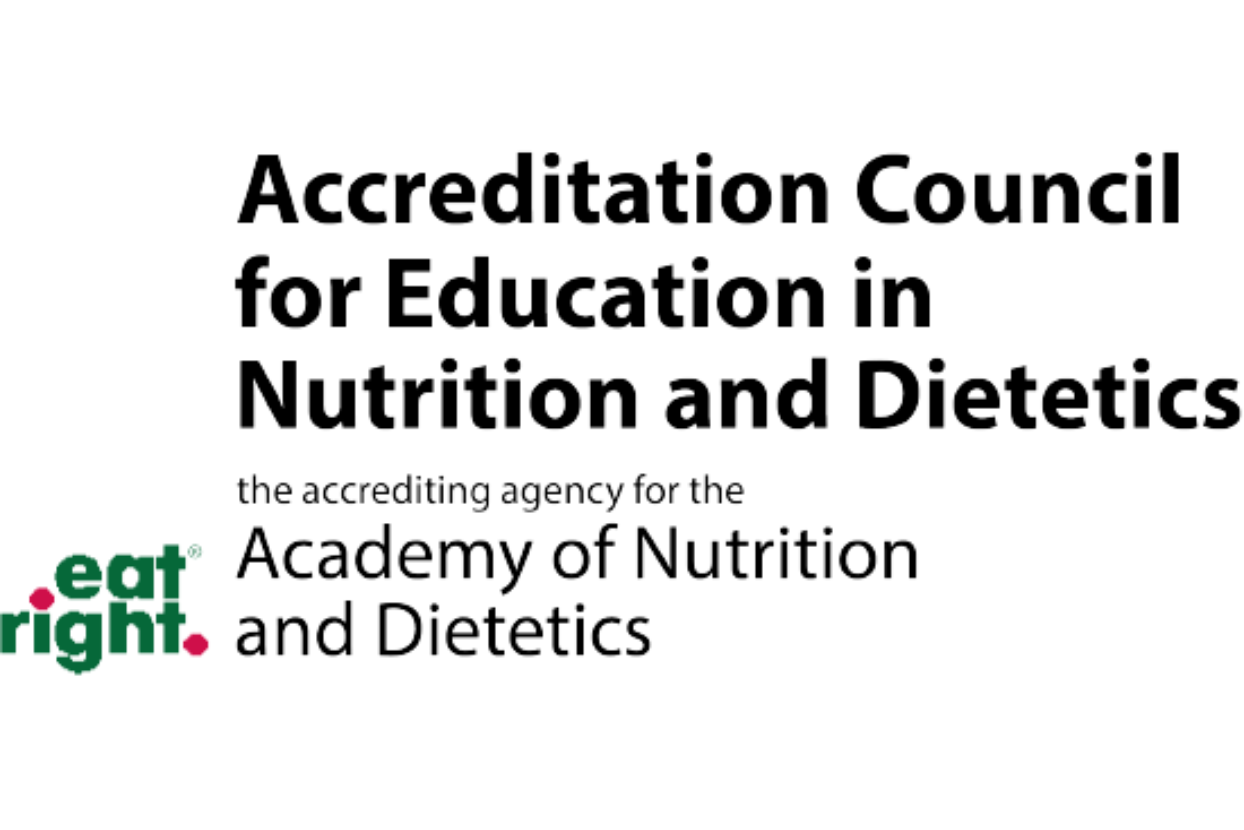If you have either graduated from a Didactic Program in Dietetics (DPD) with a verification statement or are in the process of completing your DPD, the online MPPD program may be the right choice for you. Our integrated online format allows you to take classes at your convenience and complete your supervised experiential learning in Iowa or anywhere in the US – where you are already established or would ultimately like to work.
Please note that CDR requires that individuals complete coursework and supervised practice in program(s) accredited by the Accreditation Council for Education in Nutrition and Dietetics (ACEND). Graduates who successfully complete the ACEND-accredited MPPD program (RD2B track) at Iowa State University are eligible to apply to take the CDR credentialing exam to become an RDN. Upon successfully passing the CDR credentialing exam to become an RDN, MPPD graduates are eligible to apply for state licensure or certification to practice. While state interpretations of statutes may vary, it is ACEND's considered opinion that the program meets the educational requirements for dietetics licensure and certification in all states. However, completing an ACEND-accredited academic program alone does not qualify an individual for licensure or certification as a dietitian in any state. Individuals should review their state's licensing statutes and regulations to understand the specific requirements, including supervised practice and examinations, needed to obtain a dietetics license. More information about state licensure and certification can be found at this link: State Licensure.
Learn more about the educational pathways to becoming an RDN at Iowa State University.
Opportunities for dietetics practitioners are limited only by your imagination. Learn more about some potential job opportunities for a Registered Dietitian Nutritionist.





